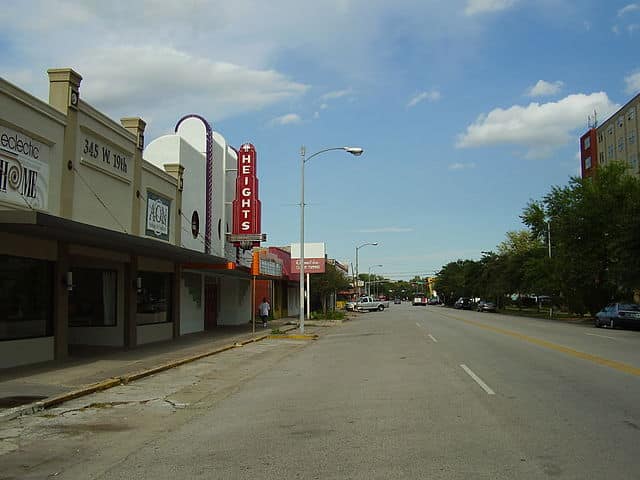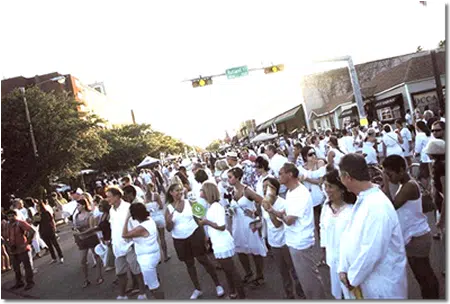Heights Houston Air Conditioning Repair Heating
AC REPAIR HEIGHTS HOUSTON
Autumn Mechanical provides top quality repair, installation, and maintenance of Air conditioning and furnace products for Heights Houston. Our technicians can work on all brands and fix your hardest HVAC problems quickly. We’re experts in high efficiency air conditioning systems if you are in need of a replacement. We offer Trane and other brand equipment reaching efficiencies in excess of 16 SEER.
We understand that in Heights Houston most customers are looking for FRIENDLY CONVENIENT SERVICE, QUALITY CRAFTSMANSHIP, at AFFORDABLE RATES. Autumn Mechanical can offer all of these.
AIR CONDITIONING INSTALLATION HEIGHTS HOUSTON
When summer arrives in Heights Houston, a central air conditioning system provides the best relief from rising outdoor temperatures and humidity. A properly designed and installed by the Air Conditioning Installation Heights Houston technicians at Autumn Mechanical can add many years of quiet, economical comfort and also help increase indoor air quality.
Homeowners with an A/C unit that is over eight years old might benefit from upgrading to a new energy-efficient model. In fact, replacing a 10 SEER air conditioner installed from the 90s with a new SEER system installed by the Air Conditioning Installation Heights Houston specialists can save up to 30 percent on annual tune-up costs.
AIR CONDITIONING REPLACEMENT HEIGHTS HOUSTON
A professional Air Conditioning Replacement Heights Houston service always begins with proper system design. This includes running load calculations on the living area along with sub-domains to determine the right capacity requirements for the A/C unit. Poorly designed AC systems might not adequately cool every area of the building, and some rooms can remain hot and humid even while the system is operating. For this reason, contractors who do not run complete AC load calculations should be avoided.
The replacement of a well-designed air distribution system is also a critical component in a fully optimized system. The Air Conditioning Replacement Heights Houston technicians at Autumn Mechanical understand this.
AC TUNE UP HEIGHTS HOUSTON
When it comes to offering our customers the best AC Tune Up Heights Houston service, we don’t stop there. When you sign a maintenance agreement with Autumn Mechanical and become a member, your Fixed Right limited parts and labor warranty on all repairs HVAC System Tune-Up promise.
Backed by the integrity of the AC Tune Up Heights Houston company of expert heating and air conditioning repairs and services, Autumn Mechanical has been in business since 1983.
Schedule Call Back
Discounts
View Our Special Offers
Click HereEach team member has extensive knowledge and experience in all aspects of air conditioning, heating, plumbing, and refrigeration. With over 100 years of combined experience, our management team is comprised of some of the brightest and passionate people in the industry. – Autumn Mechanical
OUR HVAC SERVICES INCLUDE:
-
Residential HVAC
-
Air Conditioning Services
-
Heater Repair
-
Attic Insulation
-
Refrigeration
-
Commercial HVAC
-
AC Repair
-
Heater Installation
-
Ventilation
-
Indoor Air Quality
-
Plumbing
-
AC Installation
-
Heat Pump Equipment
-
Preventative Maintenance
-
Humidity Control
ABOUT HEIGHTS HOUSTON TX
Oscar Martin Carter arrived in Houston in 1886, and by 1891 he and a group of investors established the Omaha and South Texas Land Company. The company purchased 1,756 acres (7.11 km2) of land and established infrastructure, including alleys, parks, schools, streets and utilities, worth $500,000 United States dollars. When Houston Heights was founded, it was a streetcar suburb of Houston which attracted people who did not wish to live in the dense city. It had its own municipality, established on July 1, 1896. The first mayor of ….

RECENT ARTICLES

Can Outside Temperature Affect Central Air Conditioning Unit
Houston faces pretty extreme summers, with lingering high temperatures through most of the fall. When the temperatures outside rise to the high 90s and beyond, undersized, outdated, and less efficient air conditioning units may experience trouble cooling the air inside of your space. The system air conditioners use to cool air involves a circulation of refrigerant. Refrigerant is a fluid designed to vaporize and turn warm air into cool air. When the air becomes warmer, your air conditioner takes more energy to transform the temperature of the air. Air-conditioners work harder as outside temperatures climb because the air-conditioning cycle requires the outside temps to be lower than the heat being released from the unit. The Air-Conditioning Cycle Air conditioners are constantly working to deliver your space cool air. This is done through the air conditioning cycle. This continuous cycle involves multiple steps including, compression, condensation, expansion, and evaporation. Outside of your home, in the warm humid Houston climate, your air conditioner is hard at work compressing the refrigerant, causing the temperature to rise. The large fan on your unit is used to blow air across your air conditioning unit’s coils, which contain the heated refrigerant. Whenever the air outside is cooler than the fluid, heat energy flows from the refrigerant to the outside air. When the high-temperature gaseous refrigerant gives up energy, it turns back into a liquid. The liquid then goes through an expander, which transforms the refrigerant to a low-temperature, liquid. As this cooled down liquid makes its way into your home, another fan blows inside air across the coils, converting it into a vapor that cools your home. How Outside Temperature Affects Your AC The amount of heat and the rate at which it transfers depends upon the temperature difference between the outside air […]

Poor Air Conditioning Can Damage Your Home
When you live in a climate like the one in Houston you get pretty used to these long hot and humid days. We all know that in the deep summer heat, retreating into the cool comfort of your home and relaxing in front of an air conditioner is your best chance at escaping the heat! However, something you might not know about your homes air conditioning system is that it is not only protecting you and your family from the heat, it is also protecting your home! That’s right, when your home is exposed to the extreme conditions that come along with a southern summer, it can actually become damaged from the moist conditions. Humidity has the ability to warp the wood in your home. This means paneling, doorways, flooring, wooden stairs, cabinets, built-ins, bookcases, wooden instruments, and even wooden furniture can become vulnerable to warping when not kept in a cool and dry space. This can be devastating to a homeowner because the only way to fix a home with warped wood is to completely remove the damaged wood and replace it. In a home with its original wood fixtures this can completely destroy its vintage charm and old school appeal. Additionally, this kind of damage will add up to be a budget breaking expense quickly! Another problem with homes that do not have properly functioning air conditioning is that they are much more likely to become infested with mold and mildew. Not only will mold and mildew eat away at your home, it is also problematic for your health. Living with mold and mildew can lead to you suffering from respiratory issues, becoming very ill, or developing lifelong conditions that negatively impact your health. Having mold removed from a home can also become extremely expensive […]

Houston Heights Spring A/C Tune Up
The Heights is Houston’s oldest planned community (circa 1890). Originally a very small area, it was annexed to the City of Houston in 1918. Unofficially, The Heights now includes the Woodland Heights, Norhill Heights, Sunset Heights, and surrounding tiny subdivisions that have all grown together into one diverse and funky area. The Heights is located in northwest-central Houston. Unofficially speaking, the boundaries are Washington Ave. on the south, IH 45 on the east, Shepherd/Durham on the west, and the North 610 Loop on the north. Thrift stores, antique havens and cafes prove to be popular at the Heights-strip. Stop by for the “First Saturday Arts Market” on the first Saturday of each month for live music, crafts, plants and artwork. As Houston Heights residents enjoy the amenities of their neighborhood, residents should plan for a Houston Heights Spring A/C tune up to return to the comfort of their homes without “No A/C” surprises. Based on the eclectic nature of the homes in the area: new construction, renovations, and rebuilds: Houston Heights neighbors should strive to keep their ac unit is proper working order. A Houston Heights Spring A/C tune up should be at the top of your spring to-do list. The largest consumer of energy in your home is your heating and cooling system. Keeping your HVAC equipment running efficiently will help control energy costs. Having a Houston Heights Spring A/C Tune-Up will get your A/C unit ready to operate safely and efficiently throughout the summer cooling season. You’ll also avoid the panic of having to repair a malfunctioning unit in the middle of the hot summer months to come. What a Tune Up Service Includes? A tune up service for the air conditioning system works like a tuning up service for the family car. It includes: • Lubrication […]


